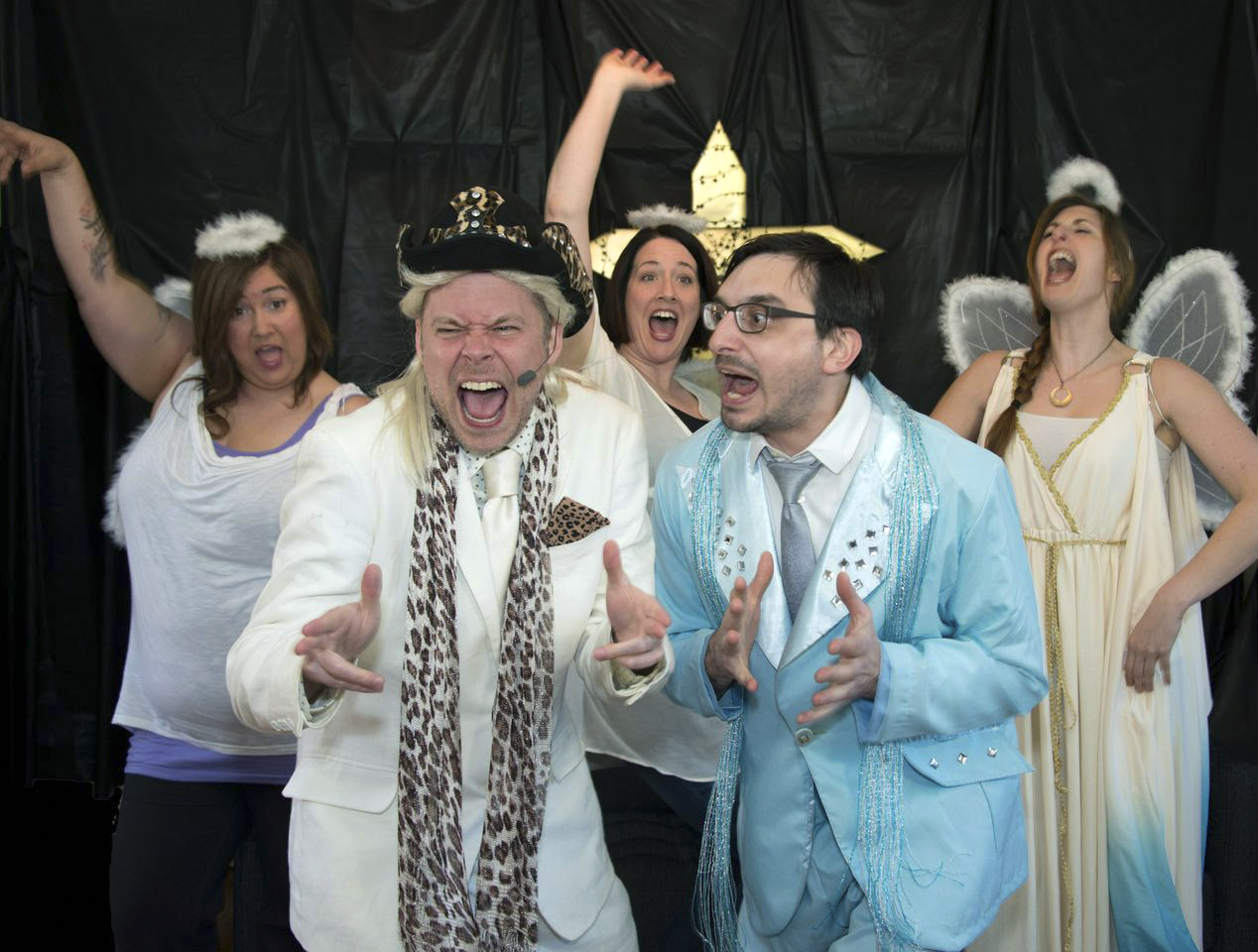Homebody
New City Theater, 1404 18th Ave., 271-4430, newcitytheater.org. $15–$20. 8 p.m. Fri.–Sat. Extended through July 6.
I like my history plays Stoppardian, full of zingers and puns, and I usually dread Tony Kushner’s panoramic historical stagings. At his worst, he’s like the perennial grad student who will never just shut up about all he knows. And Kushner certainly knows a lot about history—it’s just the packaging and parceling that sometimes escape him. (His first-draft screenplay for Lincoln ran 500 pages.) Usually performed as the two-act Homebody/Kabul, and subject to Kushner’s repeated tinkering since 1997, Homebody is an hour-long monologue whose putative subject is Afghan history, as told by an unnamed and very confiding London housewife. History is the text, and her unfulfilled personal life is the subtext constantly seeping in.
Homebody (Mary Ewald) has just returned from a shopping trip, and she wants to tell us all about it. Pausing for sips of tea, referring periodically to what she knows is an obsolete history text, she attempts to summarize 3,000 years of invasion, war, and religious conflict. A few familiar names pop out (the Taliban, Tony Blair, etc.), but we’re soon immersed in her very subjective, stream-of-consciousness history chat. “The Greco-Bactrian Confusion? Are we still in it?” she asks. Yes, we are, all subject to history’s constant, muddy flow.
Homebody is off her meds, she admits, and she’s also popping her husband’s pills. Her tale is scattered and digressive, with one red-lit hallucination that even sends her to Kabul. Her husband’s job, which she doesn’t understand, has something to do with the Internet (new when Kushner was first writing), and Homebody proceeds by similar links, leaps, and dubious associations. Homebody herself is like a Wikipedia savant, self-educated with books from the discount bin, using her history studies as a bulwark against the uncomfortable present.
Ewald played Winnie in Beckett’s Happy Days at NCT last spring, and the connection between these two cheerful, desperate women is clear. Homebody isn’t exactly insane or menopausal, but something is giving her fits. Chaos is at the door, maybe already inside the door, maybe inside her head. (Her distant husband and resentful daughter are characters in Kabul, which follows her ill-fated trip to Afghanistan.) Directed by John Kazanjian in NCT’s kitchen-sized space, Ewald is fully in command of the text. In her affecting performance, she makes this loony autodidact lonely and sad, though not quite pathetic. Her tale is a challenge to our compassion, but it’s never a chore to watch. Brian Miller
The Horrible Lamb!
West of Lenin, 203 N. 36th St., 352-1777, westoflenin.com. $12. 8 p.m. Fri.–Sat. Ends June 29.
This clumsy televangelism spoof is a good example of what happens when artists try to amuse one another without remembering to entertain the audience. Tiffany Louquet’s script for the musical boasts an Avenue Q kind of simplicity, only without the self-aware broadness (sometimes called irony). Slacker Lyle (Caleb Stengel) discovers while channel-surfing that the kid he once teased in school, Hal O’Luyah (get it?), is now a Christian singing sensation with his own television show. Why, Lyle wonders? Why not him? And when you hear Hal (Ben Erickson) sing, you’ll agree. All the singers here are either untrained or inexperienced, and the group numbers sound like a bunch of barnyard animals dropped from a plane.
Interrupting Lyle’s reverie is Mitchelletto (Mike Watt), a simpleton who, without Lyle’s knowing it, has become the cue-card dude on Hal’s TV show. When Lyle’s girlfriend Astrid (Tina Hafzalla) shows up, they conspire to unseat Hal. And with no talent, practice, or motive other than laziness, that’s what they do.
With Mitchelletto to get them backstage, the pair soon encounters Hal, his pregnant wife (Gina Merchan), and the show’s producer (Michael Ferguson). This is where hilarity and hijinks are meant to ensue, but the performances are flat and lifeless, and the cast stumbles through the script. (One performer even called another by the wrong character name.) Hoary old gags are followed by James Nugent’s tuneless songs, augmented by a trio of angels. They also provide commentary and move the plot along when it gets stuck or murky—which is often. Along with some witty screen projections, these angels are the sole saving grace of this 90-minute train wreck, directed by Dirk Hunter. Kevin Phinney
E
stage@seattleweekly.com




